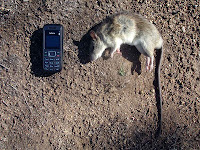Having kids in high school is helping me to appreciate there's a remarkable to shift in attitudes that's rippling through society
I'm thinking about the distinctions between gender and sexual identity.
It doesn't seem so long ago that I was considering these topics at university, particularly within units offered by anthropology and womens studies departments.
Yet I trip up on the contemporary language being used all the time.
And I can see how alienating it is for a generation older than me, particularly when a local member makes quips about not wanting any gender fluid in schools.
It's easy to pose inflexible ignorance as a conservative default.
My kids have varied perspectives and it's amazing to me how much more accepting their cohort is when people identify outside of the heteronormative paradigm.
Particularly when the language used to describe seemingly innocuous distinctions like male and female toilets in regional Australia will often be loaded with class-influenced terms like gents and ladies.I wonder if there's scope for new euphemisms to recognise the shift in attitudes?


